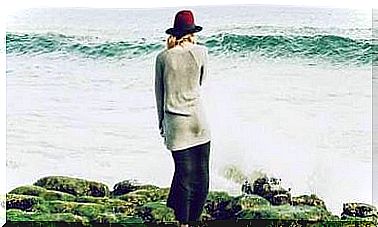How Does Our Brain Produce Déjá Vu?

You’re on vacation. You finally have time to make that trip you have dreamed of for so long. A foreign country, there where everything is new to you… however, one morning you go down to breakfast at a small cafeteria on any street, you sit down, and suddenly it happens: “You have already been there, those old buildings are familiar to you, that cobbled street, those streetlights and even the smell… it is familiar to you ”.
How can it be if you’ve never been there before? Another common phenomenon is the following: you have a conversation with someone, maybe even a discussion where emotions mark the moment a lot. Haven’t you experienced that before?
Indeed, these types of situations are quite common and disconcerting, so much so that they have always drawn the attention of scientists and experts in various fields eager to give us their explanations within their own disciplines. The scientific ones but also the supernatural ones. So let’s see today what answers we find in our own brain, knowing in which region the Dèjá Vu originate.
The function of the dentate gyrus and the déjá vu
The name of this brain structure may seem somewhat disturbing to you: dentate gyrus. But in reality, it is a very particular little region with a very special function. It is part of the hippocampus, of whom we have often spoken to you because it is so related to memory and our emotional part.
-Well, actually what the dentate gyrus does is something very simple as well as relevant: He is in charge of the so-called episodic memory. In other words, he is the one who evokes and relates our autobiographical events, he is the one who associates a smell with a memory, for example a street to a conversation, that restaurant to that dinner where something made us feel bad, that park bench to that appointment that never I arrive…
-The dentate gyrus is the one who also allows us to differentiate very similar situations, allowing us to place them in time. For example: the purchase you made today is not the same as the one you made last week, and that person you met today at work, you have never seen in any other place or time.
Why do they originate?
At this point we are going to show you what the scientists tell us. We can take the approach we want, but in reality, what is clear is that today there is still no consensus:
- Susumu Tonegawa, is a neuroscientist who has worked with a group of people who constantly experience the Dèjá Vu phenomenon. For him, it is nothing more than a memory problem, a small failure that occurs when our dentate gyrus cannot differentiate between two very similar situations. This is a common and persistent phenomenon in diseases such as Alzheimer’s.
- Another theory that we should take into account is the so-called “dream memory.” Sometimes, during those moments in which we are submerged by the dream dimension, we are involved in stories, scenarios and situations that the brain invents for us. They are very vivid dreams in which we experience different events intimately.
Later, in our daily and lucid life, we come into contact with situations that “sound like something to us.” The dentate gyrus has problems in differentiating then if what we are experiencing we have experienced before, or if it is new. Have I ever been on the streets of this country before? Or maybe this place reminds me of a dream I had? It is a really interesting field of study.
- One last aspect to take into account is the profile of people who, according to statistics, have more frequent déjá vu. They are sensitive, intuitive and creative personalities. By creative we do not mean “that these experiences are made up voluntarily or involuntarily, not at all.” They are people with more open skills, more receptive and therefore more creative. Profiles that when remembering something, more easily access the plane of the unconscious of our brain, the one that is not so accessible to everyone.
All of them theories that have not yet brought us a clear conclusion. But without a doubt, each of us is free to embrace the approach that best suits us in our own experiences. What’s yours?









